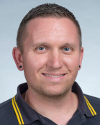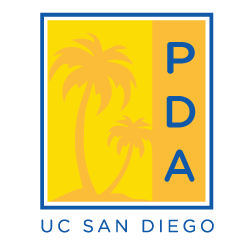
David Stachura, Ph.D.
Tenure-Track Assistant Professor, Department of Biological Sciences | California State University, Chico

- Interview Overview
Interview Overview
Interview and Editing by: Asma Khan
1. Please list your previous department at UC San Diego and provide a brief description of the research you conducted?
My previous department at UC San Diego was Cellular and Molecular Medicine (CMM) in the School of Medicine. I started out as a postdoctoral fellow, but after receiving a K01 mentored career development grant from the NIH, I was promoted to Assistant Project Scientist. My research was (and still is) focused on understanding the molecular basis of hematologic (blood) diseases. In other words, my major research question is: What are the signaling cascades that are responsible for making blood, and how are they disrupted during disease?
2. Please describe your current job profile?
My current job title is Tenure-Track Assistant Professor. However, I am no longer at a huge research institution like UC San Diego. Although I still maintain an independent laboratory, my primary job duty is to teach Undergraduate and Master’s student classes. Fortunately, a huge focus at CSU Chico is integrating research into the classroom. While students at UC San Diego don’t have to take many laboratory classes on the path to their degree in Biology, at CSU Chico every biology class includes a laboratory component and we integrate our independent research into those classes.
3. What made you decide to transition into your current position?
It was really time for me to obtain a tenure-track position, and I never really wanted to have a research-only position that was funded solely by external grants. I have always been interested in teaching students about biology in addition to doing research in the laboratory. Luckily, this position allows me to do both. I also love being at a smaller institution where I feel like I have more personal interaction with my students.
4. Apart from the research you conducted, do you feel like anything in particular has helped you to acquire your current position?
Yes, definitely. Luckily, as a postdoc, my mentor encouraged me to teach a Molecular Biology summer session class at UC San Diego. It was super intense, since the classes are packed into only 5 weeks. However, it was a great learning experience; I got to design everything the way that I wanted to, which really prepared me for planning and designing class. I also participated in the College Classroom, a great class designed by the Center for Teaching Development and is taught by Dr. Peter Newbury. This course really helped me to be more prepared for my teaching responsibilities. I encourage anyone who wants to improve their teaching to participate in this course; I learned a lot. The course also helped me in designing interactive classes for my teaching interviews.
5. Please list some of the most striking similarities and differences between your postdoc and current position?
The similarities? Both are hard work. I continue to feel like there isn’t enough time in the day to complete everything I want to get done. I am also still focused on a similar line of research, and applying for similar grants.
The differences? The main difference is that I have much more teaching responsibilities than during my postdoc. I enjoy that aspect; it’s different, but not in a bad way. Overall, being a postdoc is much easier. You don’t need to set up your own lab and be responsible for everything. I’ve heard from others that running your own lab is like being a small business owner, and I totally agree. It’s your responsibility to make sure that everything runs smoothly. If it doesn’t, then ultimately it’s your problem. It should also be said that I enjoy that aspect of running my own laboratory- it allows you to set up and run everything just the way that you like!
6. Is there any specific challenge (during the entire process of transitioning) that you would like to highlight and if so how did you overcome it?
I think transitioning is challenging itself, but there were a lot of issues that I encountered. One is just finding a position- there are a lot of postdocs, and in most fields, not a ton of job openings. Once you find that position, you’re still competing with others, and trying to decide if it’ll work for you. One example of an issue that always cropped up was what my spouse would do for her career. We finally decided that we would just pull the trigger, take the job that seemed good for me, and she would make some career changes (which she already wanted to do anyway). Now, she’s happy that she made a change; she really loves what she’s doing. In essence, it really made a big difference where we were physically located. I mean, hopefully you are signing on for a long time at a new place when you take a job as a PI. So, we wanted to make sure the location fit with our lifestyle needs. I think we chose well- we are really enjoying Chico, CA!
7. Please describe your goals and ambitions for the next 5 years?
My goals remain the same as when I was a postdoc; to get grants, perform successful research, publish papers, and make an impact in my scientific field. I also want to inspire my students, and see them go off to do exceptional things with their lives. Oh yeah- tenure would also be nice.
8. What do you feel you could have done more, as a postdoc, to help prepare you for or acquire your current position?
I guess there’s always something more that you can do. But, overall, I feel like my postdoctoral experience at UC San Diego prepared me well for my career.
9. What do you feel is the most important advice you can give to a current UCSD postdoc in order for them to obtain a position such as yours?
I think the key is long-term planning for your goals. If you want to teach in the future, then you need to get experience teaching. And, if you want a career in research, then you should really focus on that. If you’d like to get involved in intellectual property law, then start working on it. Fortunately, UC San Diego has lots of opportunities to get these types of experiences. Also, I think every postdoc (regardless of their long-term goals) should take the San Diego Lab Management & Leadership Symposium that the Torrey Pines Training Consortium sponsors - it really helps you think about your goals as a scientist and how to achieve them.
